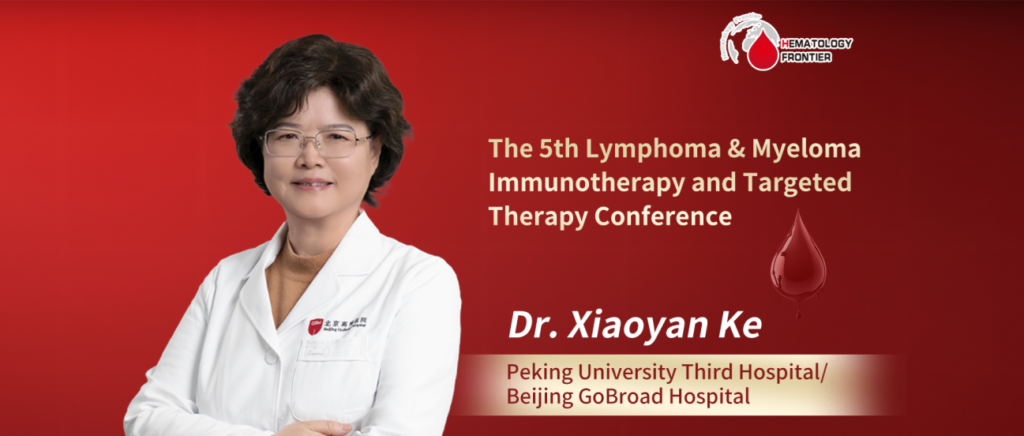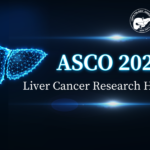
On July 20, the 5th Lymphoma & Myeloma Immunotherapy and Targeted Therapy Conference, along with the Gaobo Medical Academic Conference, was grandly held in Beijing. With the core concepts of "Precision, Integration, Innovation," the conference closely followed the latest developments and frontier topics from the 29th European Hematology Association (EHA 2024) and the 2024 American Society of Clinical Oncology (ASCO) annual meetings. To deepen the exchange and discussion, Oncology Frontier - Hematology Frontier invited Dr. Xiaoyan Ke from the Peking University Third Hospital/Beijing GoBroad Hospital for an exclusive interview to discuss advancements in the field and share academic insights.Oncology Frontier – Hematology Frontier: You mentioned that “As the number of relapsed/refractory cases increases, the clinical problems we face will become more complex.” Specifically, what complex clinical challenges are currently faced in the diagnosis and treatment of lymphoma and myeloma?
Dr. Xiaoyan Ke: Although significant progress has been made in the treatment of lymphoma and myeloma in recent years, a report from ASH 2023 involving thousands of patients showed that more than 50% of patients did not achieve complete remission (CR) with first-line therapy. Even among those who underwent bone marrow transplantation and CAR-T therapy, many still faced refractory or relapsed conditions. Short-term follow-up results indicated that over 50-60% of these patients died within a few years, with 75% of deaths attributable to disease progression, some due to treatment-related factors, and others due to other illnesses.
This result highlights the daunting task facing oncologists today. Particularly with the continuous emergence of new drugs, including small molecule drugs, bispecific antibodies, monoclonal antibodies, and cellular immunotherapies, formulating the best treatment plan for patients has become a significant challenge. Clinicians must decide between traditional first/second-line chemotherapy and the early introduction of targeted or novel therapies, which requires higher levels of judgment and experience.
Moreover, the implementation of precision medicine undoubtedly presents a severe test for doctors and medical centers in terms of technology, knowledge, and experience. Therefore, we must persistently strive to improve medical technologies and strengthen physician training to ensure that every patient can receive the most reasonable and effective treatment plan.
Oncology Frontier – Hematology Frontier: The 5th Lymphoma & Myeloma Immunotherapy and Targeted Therapy Conference closely followed the latest developments from EHA 2024 and ASCO 2024. Could you discuss the latest international research findings addressing the challenges in lymphoma/myeloma diagnosis and therapy? What were the highlights of this conference?
Dr. Xiaoyan Ke: Globally, the number of submissions to academic conferences continues to grow, and the content and types are becoming increasingly rich. This year, particularly noteworthy was an in-depth study on the mechanisms, providing a detailed analysis of the specific impact of various molecular or genetic mutations on prognosis. The study aimed to accurately identify and locate potential high-risk factors in newly treated patients before they received first-line treatment, enabling more precise treatment strategies. This marks a significant advancement over the traditional clinical practice of assessing risk using the International Prognostic Index (IPI), which includes broad indicators such as tumor size and staging. With rapid advancements in science and technology, we can now conduct more detailed classifications of patients’ conditions guided by molecular diagnostics.
Another in-depth study on prognosis offered new clinical treatment perspectives and potential insights. It is well-known that P53 gene mutations are closely associated with drug resistance and often indicate poor prognosis. At this year’s international conferences, teams conducted thorough studies on P53 mutations, exploring the impact of single gene mutations/double gene mutations, mutation sites, and whether they are accompanied by chromosomal deletions on patient prognosis. This research also analyzed the functional changes of the P53 gene to comprehensively evaluate its impact on prognosis. These findings provide more precise and personalized guidance for future clinical treatments, potentially improving patient outcomes during treatment.
The outstanding research results at EHA 2024 and ASCO 2024 not only highlight significant medical advancements but also undoubtedly bring valuable benefits to countless patients. We have every reason to believe that more important research findings will gradually demonstrate their value in clinical treatments in the future, leading us toward a new era of more precise and efficient medical care, offering new hope to more patients, and contributing remarkable strength to human health.
Oncology Frontier – Hematology Frontier: Looking ahead, what challenges in lymphoma/myeloma treatment will your team further explore? What are your expectations and suggestions for the development of lymphoma/myeloma diagnosis and treatment in China?
Dr. Xiaoyan Ke: Our department of lymphoma and myeloma at the hospital has long focused on research and practice in cellular immunotherapy and targeted therapy, having successfully performed thousands of CAR-T treatments, making it potentially the largest single-center in China. In clinical practice, we have observed significant differences in patient prognoses, with some achieving remarkable treatment effects while others experienced relapses within a short period, highlighting the impact of individual differences on treatment outcomes. Our hospital is equipped with advanced testing platforms that can comprehensively and meticulously evaluate high-risk factors for various diseases, covering key indicators such as drug resistance and sensitivity to targeted drugs, providing precise and reliable diagnostic bases for clinicians. Achieving personalized treatment through this platform has become one of our team’s key research focuses.
Our team is also committed to promoting a comprehensive and thorough treatment model aimed at curing rather than just achieving short-term treatment results. By widely adopting and applying advanced technologies such as targeted drugs and cellular immunotherapy, we strive to provide high-quality and personalized treatment plans for patients. A study presented at EHA 2024 revealed that patients receiving CAR-T therapy at the second-line treatment stage showed significantly improved efficacy and survival rates compared to those receiving it after failing chemotherapy/targeted therapy, with overall treatment costs also being lower. This finding suggests that although novel treatments like CAR-T have high initial costs, their excellent efficacy and cost-effectiveness may make them more attractive options in the long term.
In the treatment process, toxicity is undoubtedly a core concern for patients. The key to reducing toxicity lies in timely evaluation of treatment effects by clinicians and flexible adjustment of treatment plans based on the patient’s specific conditions to ensure effective and safe treatment processes. Our team usually conducts a comprehensive evaluation of the treatment effect after two rounds of chemotherapy. If the evaluation indicates suboptimal efficacy, we will carefully analyze and explore more appropriate new treatment plans to ensure the best progress in the patient’s treatment process.
Additionally, a study at ASH 2023 pointed out that patients who hurriedly received treatment after diagnosis generally had unsatisfactory efficacy. This is mainly due to insufficient and comprehensive consideration by doctors when formulating treatment strategies, often conducting further examinations and strategy adjustments only after discovering poor clinical efficacy. Therefore, for patients with economic conditions permitting, we recommend comprehensive examinations such as molecular biology before treatment to ensure the scientific and targeted nature of treatment strategies. For patients with limited economic conditions, when treatment efficacy is poor, especially in cases of recurrence, timely necessary examinations are strongly recommended. Comprehensive testing can provide doctors with a basis for formulating more targeted treatment plans, significantly improving treatment efficacy compared to blindly participating in clinical trials.
In summary, with the continuous advancement of medical technology, lymphoma treatment strategies are also constantly optimized and innovated. Every patient is a unique individual with different treatment needs and responses. Therefore, by comprehensively considering factors such as patients’ genetic characteristics, disease progression, and personal preferences, more scientific and reasonable treatment plans can be formulated. In the future, our team will continue to deepen research in the field of lymphoma treatment, continuously explore new treatment methods and strategies, and look forward to broader exchanges and cooperation with colleagues at home and abroad, jointly promoting the development of lymphoma treatment and bringing benefits to global patients.
Dr. Xiaoyan Ke
- Chief Physician, Doctor of Medicine, Doctoral Supervisor, Second-level Professor
- Director of the Department of Hematology, Peking University Third Hospital (1999-2018)
- Deputy Director of the Department of Hematology, Peking University Medical School (2013-present)
- Chief Consultant of the Department of Lymphoma and Myeloma, Beijing GoBroad Hospital, Gaobo Medical (Hematology) Beijing Research Center
- Head of the Adult Lymphoma Department, Gaobo Medical (Hematology) Beijing Research Center
- Former Director of the Hematology Committee, Chinese Female Medical Doctors Association
- Director of the Targeted Therapy Professional Committee, Chinese Female Medical Doctors Association
- Executive Vice Chairman of the Oncology Expert Committee, Chinese Female Medical Doctors Association
- Deputy Chairman of the Hematological Oncology Committee, Chinese Association of Geriatrics
- Deputy Chairman of the Hematology Professional Committee, China Medical Education Association
- Standing Member of the Lymphoma Professional Committee, Chinese Anti-Cancer Association
- Deputy Editor of Leukemia and Lymphoma Journal and editorial board member of multiple journals
- Expert in medical technology appraisal for the Ministry of Health and Beijing
- Central Health Consultation Expert


